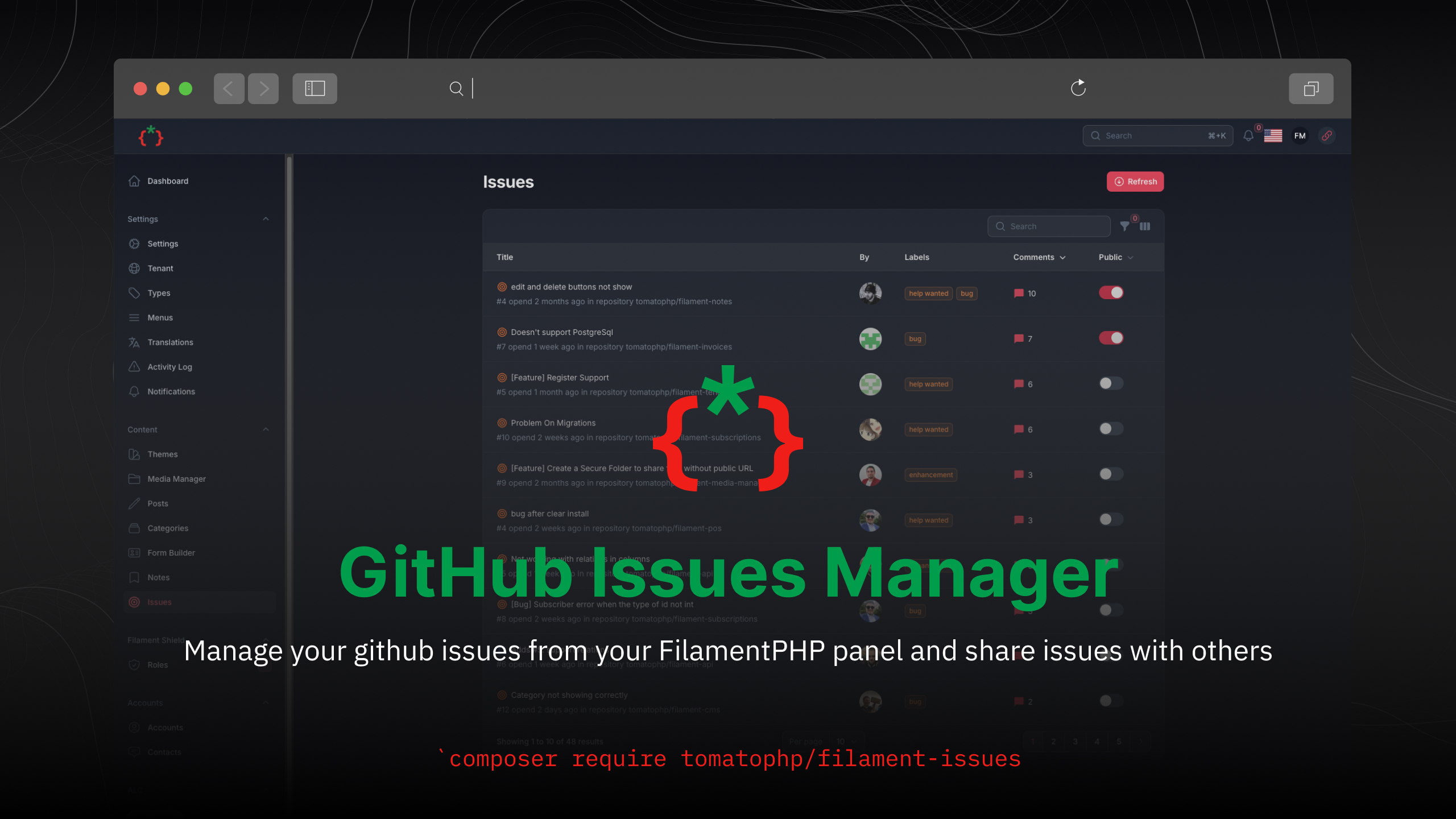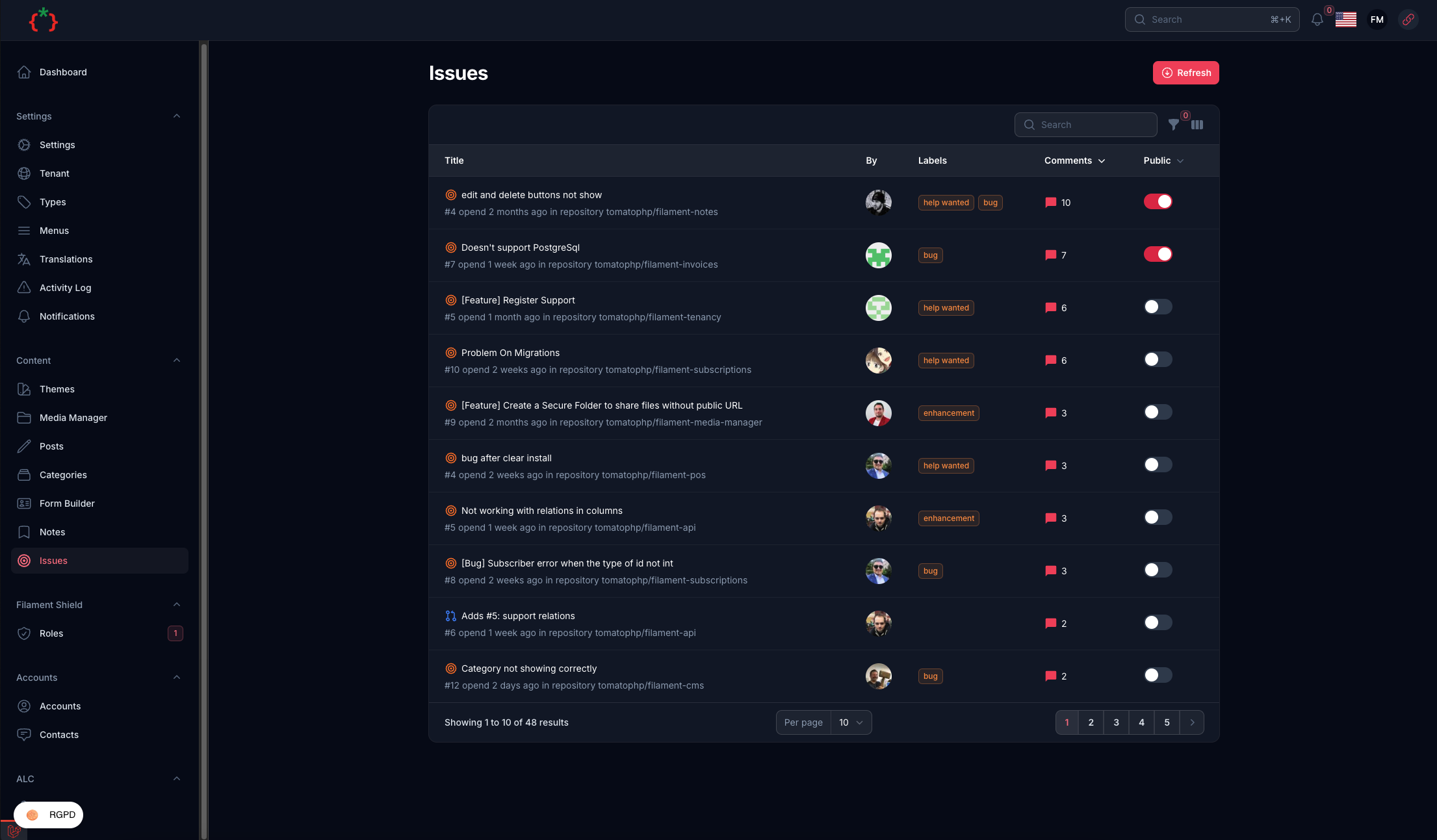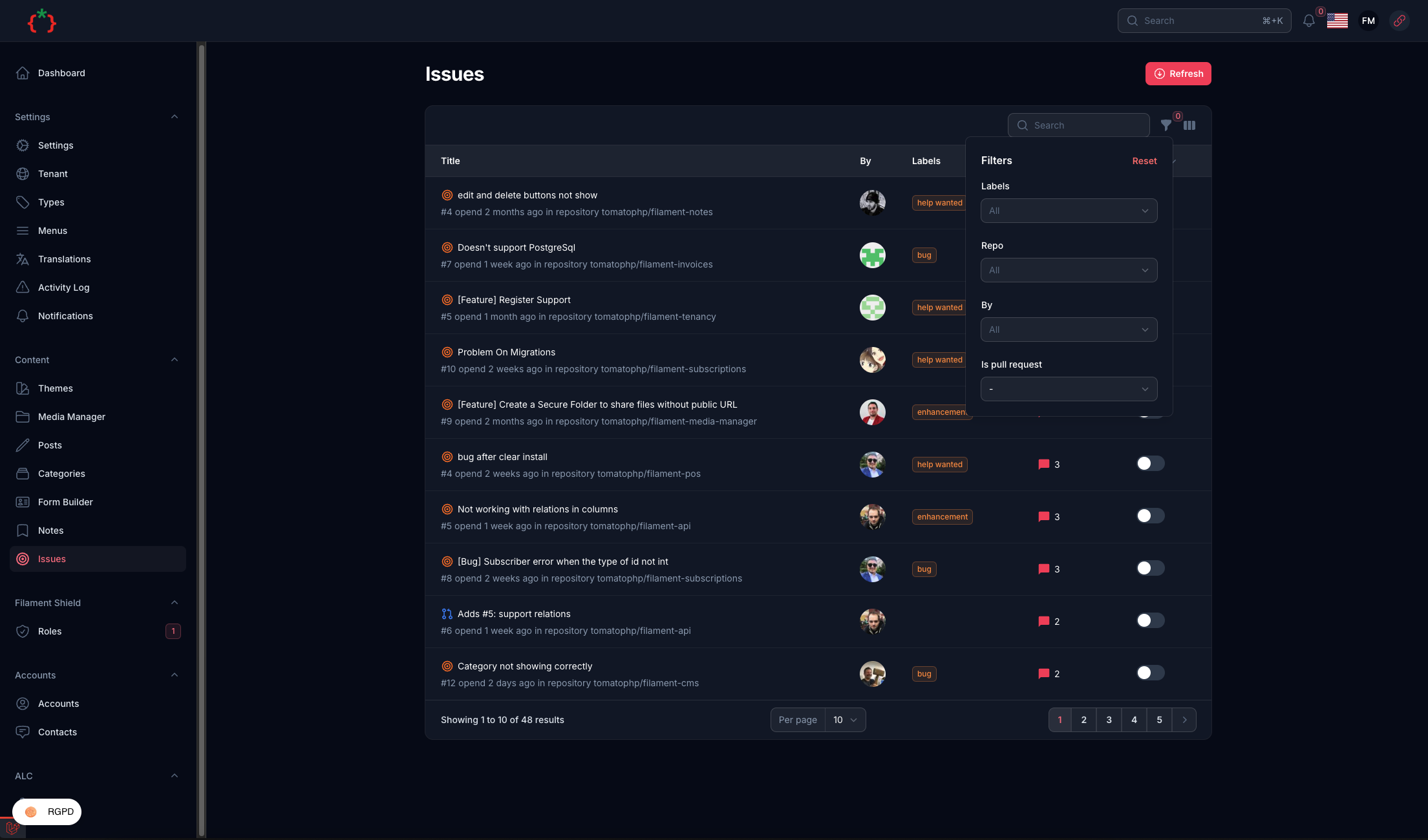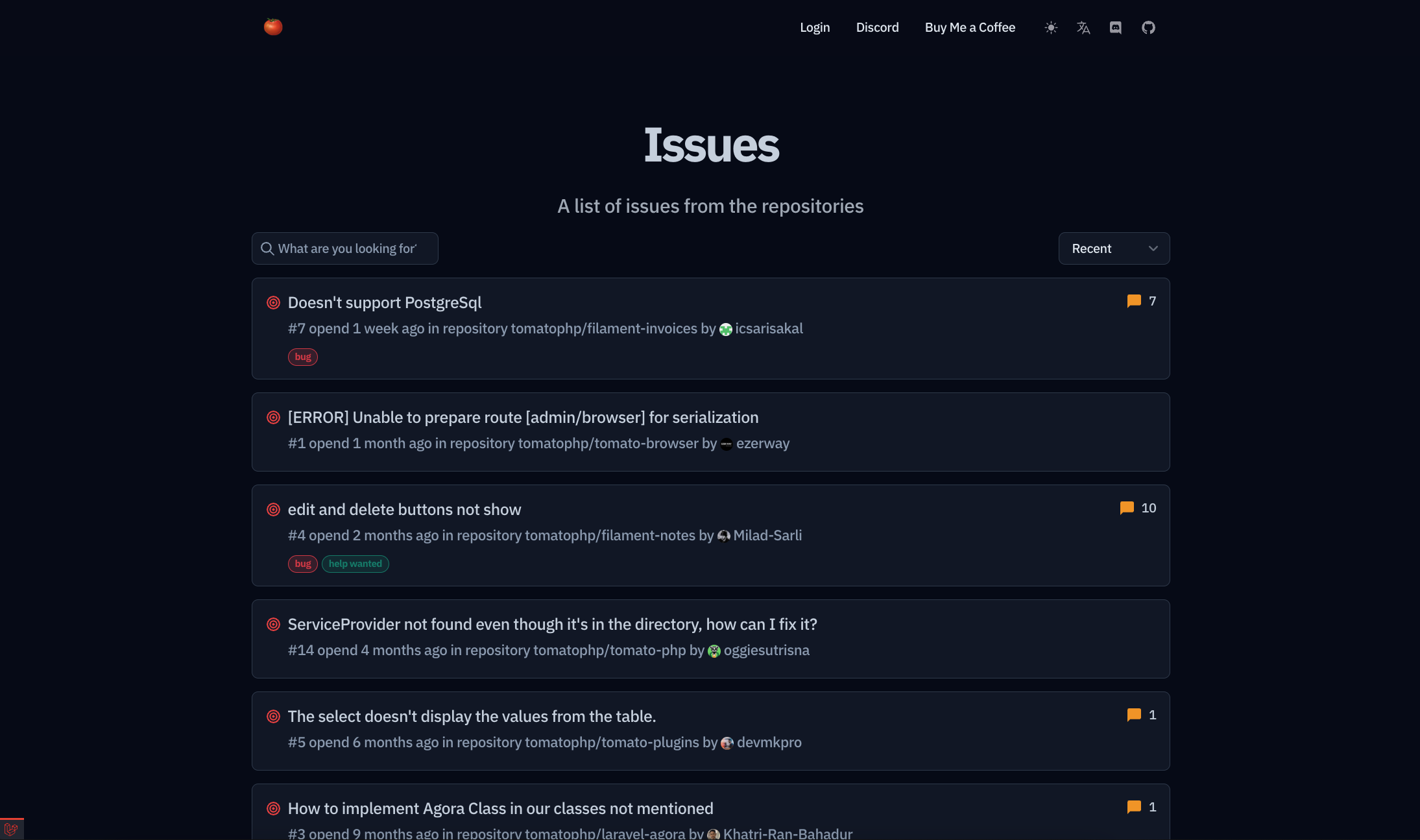
Filament GitHub Issues Manager
Manage your GitHub issues from your FilamentPHP panel and share issues with others
Features
- [x] Fetch issues from GitHub
- [x] Filter issues by labels
- [x] Filter issues by assignees
- [x] Filter issues by author
- [x] Filter issues by created date
- [x] Filter issues by repository
- [x] Issues UI Component
- [x] Issues Card Component
- [x] Refresh issues command
- [x] Register Repo from Service Provider
- [x] Integration with Filament CMS Builder
- [ ] Manage Issues from FilamentPHP panel
- [ ] Share Issues with others
- [ ] Filter By Milestones
- [ ] Filter By Projects
- [ ] Filter By Reactions
- [ ] Add comments to issues
- [ ] Add labels to issues
- [ ] Add assignees to issues
- [ ] Add milestones to issues
- [ ] Add projects to issues
- [ ] Add reactions to issues
- [ ] Integration With Jira
- [ ] Integration With Filament PMS
coming soon
Screenshots



Installation
composer require tomatophp/filament-issues
after install your package please run this command
php artisan filament-issues:install
if you are not using this package as a plugin please register the plugin on /app/Providers/Filament/AdminPanelProvider.php
->plugin(\TomatoPHP\FilamentIssues\FilamentIssuesPlugin::make())
now you need to publish the config file filament-issues
php artisan vendor:publish --tag="filament-issues-config"
now on your config file edit orgs and repos so you can select which organization and repository you want to fetch issues from
return [
/*
|--------------------------------------------------------------------------
| Organizations
|--------------------------------------------------------------------------
|
| List of organizations to search for issues.
|
*/
'orgs' => [],
/*
|--------------------------------------------------------------------------
| Repositories
|--------------------------------------------------------------------------
|
| List of repositories to search for issues.
|
*/
'repos' => [],
]
now on your services.php config add this
'github' => [
'username' => env('GITHUB_USERNAME'),
'token' => env('GITHUB_TOKEN'),
],
and on your .env file add this
GITHUB_USERNAME=your-github-username
GITHUB_TOKEN=your-github-token
now clear your config
php artisan config:cache
after install you will find a refresh button on the issues resource you can click it the fetch your issues from GitHub make sure your queue is running
Usage
you can use this Issues on public by just use this component
<x-filament-issues />
or you can use direct issue card by use this component
<x-filament-issues-card :issue="$issue" />
Refresh Your issues
we create a predefined command to refresh your issues by use this command
php artisan filament-issues:refresh
Register Repo using Facade
you can register your repo by use this code on your AppServiceProvider.php
public function boot()
{
FilamentIssues::register([
'tomatophp/filament-issues',
'tomatophp/filament-cms',
'tomatophp/filament-pms',
]);
}
Integration With Filament CMS Builder
you can use this package with Filament CMS Builder by use this code on your AppServiceProvider.php
public function boot()
{
FilamentIssues::register(
fn() => Post::query()
->where('type', 'open-source')
->pluck('meta_url')
->map(
fn($item) => str($item)
->remove('https://github.com/')
->remove('https://www.github.com/')
->toString()
)
->toArray()
);
}
Publish Assets
you can publish config file by use this command
php artisan vendor:publish --tag="filament-issues-config"
you can publish views file by use this command
php artisan vendor:publish --tag="filament-issues-views"
you can publish languages file by use this command
php artisan vendor:publish --tag="filament-issues-lang"
you can publish migrations file by use this command
php artisan vendor:publish --tag="filament-issues-migrations"
Other Filament Packages
Checkout our Awesome TomatoPHP